Search Results
Showing results 841 to 860 of 1225
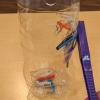
Magnetic Sensory Bottles
Source Institutions
In this activity learners will investigate magnetic and non-magnetic items in a sensory bottle.
Dowels and Rubber Bands I
Source Institutions
If you have 3-foot dowels and rubber bands, you can can started on this fun and open design challenge. You can make structures big and small: make it so you can fit your parent into it!
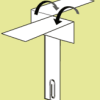
Hang Time
Source Institutions
Learn how to make and fly a paper helicopter! This simple activity includes a template (for the copter "blades") and instructions for folding, flying, and testing designs.
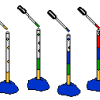
Liquid Layers
Source Institutions
Experiment with liquids of different densities and create liquid layers. For example, oil and water have different densities: oil floats on water because it is less dense than water.
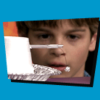
Electroscope
Source Institutions
In this activity, learners make an electroscope out of a foam cup, straw, aluminum pie pan, thread, and foil. Learners use their electroscopes to test for static electricity.

How do we name things?
Source Institutions
In this activity, learners will learn a bit about botany as the explore botanical names and common names of plants.
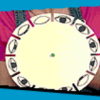
Phenakistascope
Source Institutions
In this optics activity, learners build an animation tool to make mini movies. When you spin a phenakistascope, the pictures move so quickly that your eyes and brain can't separate the images.
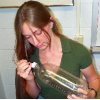
If Hot Air Rises, Why is it Cold in the Mountains?
Source Institutions
This demonstration/activity helps learners understand why higher elevations are not always warm simply because "hot air rises." Learners use a tire pump to increase the pressure and temperature inside

Testing Antimicrobials:: Antibacterial Soap? Do They All Work the Same?
Source Institutions
Many common household cleaners are antimicrobials.
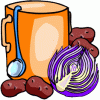
Cabbage Juice Indicator: Test the pH of household products
Source Institutions
Learners make their own acid-base indicator from red cabbage. They use this indicator to test substances around the house.
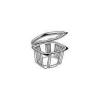
Shrinkers: Cook up some plastic!
Source Institutions
In this activity (on page 2 of the PDF), learners (with adult help and supervision) investigate how heat affects polystyrene plastic.

Weight in Space
Source Institutions
In this activity, learners are challenged to calculate their own weight on various planets using a scale and calculator. Older learners may be challenged to do so without using calculators.
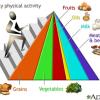
In Proportion
Source Institutions
Through this nutrition activity (page 5 of the PDF), learners will understand—and probably be surprised by—how big serving sizes of various foods should be.
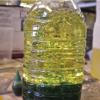
Gassy Lava Lamp
Source Institutions
In this activity, learners use oil, water, food coloring and antacid tablets to create a bubbling lava lamp. Use this activity to introduce concepts related to density, hydrophobicity vs.
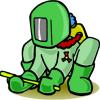
Hanford at the Half-Life Radiation Calculator
Source Institutions
This quiz lets you estimate your annual radiation exposure.
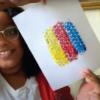
Bubble Wrap Printing
Source Institutions
In this activity, learners will use bubble wrap to print patterns on paper and experiment with mixing colors.
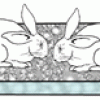
Acid Rain Eats Stone!
Source Institutions
This display shows the dangers of acid rain on buildings and other structures as two concrete bunny rabbits are disintegrated by sulfuric acid. Learners scrape chalk onto the concrete bunnies.
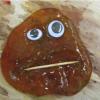
Squidgy Slime
Source Institutions
In this chemistry activity, learners transform two ingredients (4% polyvinyl alcohol solution and 4% borax solution) into gooey slime.
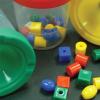
Property Sort
Source Institutions
In this activity, young learners will describe objects by their properties and sort by color, weight and texture. This activity uses household items and toys for materials.

What is a "Model"?
Source Institutions
In this activity, learners simulate the behavior of the atmosphere.
